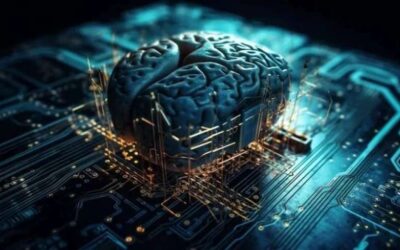
Why Quantum Computing Jobs Are The Next Big Thing In Tech Careers

Table of Contents
Introduction To Quantum Computing
Quantum computing is one of the most emerging fields that will revolutionize various sectors by harnessing the principles of quantum mechanics. Like the classical computers, which use bits as the basic units of information, a quantum computer has what is called a qubit, which is a quantum bit capable of existing in multiple states simultaneously.
It is this unique capability that gives quantum computers the edge in running complex calculations at incredible speeds, making them a critical tool in the solution of problems currently beyond the reach of classical computers.
Understanding Quantum Computing

Quantum Bits (Qubits)
Qubits, compared to the classical bits, rest in superposition, thus, they can express 0 and 1 simultaneously, providing the quantum computer with the capability of processing huge amounts of information at a time.
Key Concepts
Superposition, Entanglement, and Quantum Interference: These principles form the backbone of quantum computing. According to superposition, a qubit is in several states simultaneously. Entanglement has qubits correlated with each other in such a way that the state of one is determined by another. Quantum interference causes the wrong answers to be canceled and the right answers to be amplified.
Superposition
Superposition is one of the simple tenets of quantum computing, stating that a quantum system may be in multiple states at once. Bits are the fundamental units of information in classical computing, where each bit is either in a state of 0 or 1. Through superposition, however, what considered being a quantum bit (qubit) in quantum computing can represent both 0 and 1 simultaneously.
Entanglement
Besides superposition, another core concept in quantum computing is entanglement. It simply indicates that two qubits are correlated in a way that if the state of one qubit is changed, then irrespective of the distances apart from each other, information about the same state change of another qubit is immediately told. Remarkably, this phenomenon still holds in the case where these qubits are separated by large distances, thereby defying our classical intuition into how information could travel.
Quantum Interference
Quantum interference is a phenomenon in quantum computing where the probability amplitudes of different quantum states are of a mutually enhancing or weakening nature when there is an interaction between qubits. This interference happens because of the wave-like aspects of quantum particles, such as electrons or photons, which in the quantum domain are represented as waves.
The Evolution of Quantum Computing
Quantum computing developed far beyond its theoretical stage in the 1980s, when the initiative for such a technology was driven by visionaries, including Richard Feynman and David Deutsch. Through the present era, where driven by internet plumbing and cloud technology, quantum computing now moves from being purely theoretical to practical.
Big players in IT like Google, IBM, and Microsoft are at the nucleus of this revolution and have thereby developed and offered quantum computing platforms, beginning with IBM Q Experience and Microsoft Azure Quantum.
Real-World Examples of Quantum Computing
Drug Discovery and Development

Pharmaceutical Companies
Pharmaceutical giants like Pfizer and Roche are using quantum computing to accelerate drug discovery. The quantum computer will be capable of simulating molecular structures and interactions hitherto outside the scope of investigation, which will better enable researchers to identify potential drug candidates. For example, quantum algorithms would help scientists more suitably learn about protein folding, which is very essential in designing effective drugs.
IBM’s Collaboration
It has teamed up with a number of pharmaceutical companies to apply its quantum computing platform in drug discovery. Basically, IBM quantum computers will model and analyze key biological molecules, which may eventually lead to the discovery of new treatments and therapies far faster than by conventional means.
Financial Modeling

Financial Institutions
Banks and financial institutions such as JPMorgan Chase and Barclays are investing in quantum computing applications in risk management, fraud detection, and portfolio optimization. Quantum computers provide the ability to process massive datasets and execute complex calculations at incredible speeds. This potential enables the construction of more accurate models and predictions within financial operations.
Monte Carlo Simulations
Quantum computing will be much of help in enhancing Monte Carlo simulations applied in finance to model the probability of different outcomes within financial markets. Quantum algorithms play a major role in running these simulations at very fast speeds and high precision, therefore better equipping any financial analyst to make informed decisions.
Supply Chain Optimization

Logistics Companies
Companies such as DHL and Volkswagen utilize quantum computing in the process of optimizing their supply chain and logistic network. Quantum algorithms could easily analyze multiple variables and constraints in parallel, thus providing the best routes and schedules to make a delivery.
Volkswagen’s Quantum Initiative
Volkswagen has actually developed a quantum computing-based traffic management system to optimize the flow of traffic in urban areas. This reduces congestion and improves overall traffic efficiency by processing real-time traffic data.
Cryptography and Security

Quantum Encryption
Quantum computing is both a threat and an opportunity for cryptography. It can break through most present encryption methods, yet it also gives new ways to protect data. One of these is Quantum Key Distribution, using quantum mechanics to make the communication channels more secure.
Government and Military Use
Governments and defense organizations are applying quantum computing to improve cybersecurity. The NSA, for example, funds research into quantum-resistant techniques of encrypting sensitive information and protecting it against future quantum attacks.
Climate Modeling

Environmental Research
Quantum computing is being used to devise more accurate climate models. Traditional supercomputers struggle with the complexity of climate simulations since there are a lot of variables in the simulations. Quantum computers have the capabilities to run such complex programs much more efficiently, thus providing better predictions of climate change and helping to devise effective mitigation strategies.
Energy Efficiency
Quantum algorithms are applied equally in the optimization of energy grids and improvement of energy efficiency. For example, quantum computing is able to enhance the management of renewable sources of energy, guaranteeing more reliability and sustainability in the energy supply.
Materials Science

Development of New Materials
Dow and Mitsubishi Chemical are working on quantum computing for the discovery and design of new materials. Quantum simulations help predict material properties at the atomic level, leading to the design of stronger, lighter, more efficient materials for a wide array of applications, from aerospace to electronics.
Carbon Capture
Quantum computing is helping to develop materials for CCS technologies by modeling the interaction of CO2 molecules and potential capture materials to identify how to most effectively reduce GHG emissions
Quantum Computing vs AI

Quantum computing and artificial intelligence are probably two of the most disruptive technologies shaping our future, but they serve different purposes and work on totally different principles. Making this differentiation and showing how they complement each other enables us to take one more step toward assessing their potential impacts.
What Is AI?
Artificial intelligence simply means making machines think like humans. Designing programs that provide the ability for computers to perform tasks usually associated with human intelligence, such as learning, reasoning, solving, deciding, and so forth. Machine learning (ML) and deep learning (DL) are sub-domains of AI, focused on how computers learn from data in order to make predictions or decisions all by themselves, without explicit programming or interference from humans.
Key Differences Between Quantum Computing And AI
Processing Power
Quantum computers are able to process a large amount of information simultaneously; this makes these computers more compatible for solving complex problems that a classical computer can’t aim for. On the other hand, AI only relies on classical computing power, though it can optimize its processing through sophisticated algorithms and large datasets.
Applications
Quantum computing excels in the areas where immense computational power is required, such as cryptography, drug discovery, and complex simulations. AI finds its application in a wide range of domains that include natural language processing, image recognition, and autonomous systems.
Development Stage
Quantum computing is still in the early stages, while substantial improvements are visible in qubit stability and error correction. AI has already reached a mature state and is integrated into consumer and industrial applications.
Synergy Between Quantum Computing and AI
Quantum computing and artificial intelligence belong to two absolutely different areas, although they may empower each other. Quantum computers can support AI by fast solving optimization problems, speeding up algorithms of machine learning, and processing large data volumes. On the other hand, these may produce more powerful and clever systems that extend the boundaries of what can be expected from technology and innovation.
The Reality of Quantum Computing Today
Quantum computing today is evolving from theoretical concepts, with experiments and commercial implementation. Today, quantum computers are being developed by different organizations and institutions, and their practical applications are studied.
1 IBM Quantum
IBM offers cloud-based access to its quantum computers with IBM Quantum Experience. Researchers and developers can experiment with quantum algorithms and run simulations on real quantum hardware.
2 Google Sycamore
It was in 2019, Google claimed to have achieved quantum supremacy over the world’s most powerful supercomputer, when its Sycamore processor performed a specific calculation quickly.
3 Microsoft Azure Quantum
Microsoft’s Azure Quantum provides a platform for developing quantum applications using a range of quantum hardware and software tools.
Challenges Of Quantum Computing
Despite the progress, some serious challenges still hover over quantum computing:
Qubit Stability
Qubits are highly sensitive to external noise, which causes computational errors. The preservation of the coherence of qubits and the advancement of error correction techniques are equally important areas of research.
Scalability
Developing a scalable quantum computer with millions of stable qubits is one of the huge challenges. Currently, available quantum computers have few qubits, thus reducing their computational power.
Practical Applications
The actual applications of quantum computing in a practical and impactful sense are yet to be discovered. While the potential does seem to exist, turning these theoretical advantages into real-world benefits is highly complex.
The Future of Quantum Computing

Quantum computing has powerful potential to revolutionize many fields. With technological advancement, some of the future prospects are:
Breakthroughs In Cryptography
Quantum computers can break current cryptographic algorithms like RSA and ECC by efficiently solving problems such as integer factorization and discrete logarithms. This requires the development of quantum-resistant cryptography to secure information in the quantum era.
Advances In Medicine
Quantum computing can facilitate a breakthrough in medicine by way of simulating complex biological systems and providing speed in drug discovery. Modeling molecular interactions accurately through quantum computers can result in the design of more efficient drugs and treatments.
Optimization And AI
Quantum algorithms could process intricate problems, from logistics or financial operations to manufacturing and others. Also, quantum computing, together with AI, can enhance machine learning models. It brings them great power and efficiency.
Climate Modeling
Quantum computers can process huge amounts of data used in climate modeling and simulate complex systems that will give way to more accurate predictions, hence better strategies in mitigating the effects of climate change.
Quantum Computing Jobs
Quantum computing is one radical development in our fast-moving technological world. With its coming, a whole new breed of talented experts in this particular area is in huge demand. Not only can it pave the way to never-thought-before technological leaps, but the career scope for the appropriately talented person is also immense.
Let us talk in detail now about the various types of jobs, skills needed, educational routes, and bright future associated with quantum computing jobs.
Growing Demand For Quantum Computing Jobs
The industries are putting enough investment in Quantum technologies; at the same time, demand for skilled professionals in quantum computing is also increasing. The jobs in this field provide the opportunity to be at the very top regarding technological innovation, solving complex problems which classical computers cannot solve.
Career Opportunities In Quantum Computing
1 Quantum Software Developer

Quantum software developers develop algorithms and software for quantum computers, and they have to apply quantum programming languages like Qiskit, Cirq, and Q# in developing applications that use the power of quantum computing.
Key Responsibilities
- Development of quantum algorithms.
- Development and testing of quantum software.
- Collaboration with researchers in translating quantum theory into practical applications.
Salary Packages Of Quantum Software Developer
- Average Salary: $90,000 – $150,000 per year
- Senior Level: $150,000 – $200,000+ per year
2 Quantum Hardware Engineer

Quantum hardware engineers deal with the design and development of physical components of quantum computers, from qubits to quantum gates. The role is, therefore, quite central in enhancing the stability and scalability of quantum systems.
Key Responsibilities
- Design of quantum circuits and devices.
- Improvement in qubit coherence and error rates
- Collaboration with material scientists and physicists in developing new quantum technologies.
Salary Packages Of Quantum Hardware Engineer
- Average Salary: $100,000 – $160,000 per year
- Senior Level: $160,000 – $220,000+ per year
3 Quantum Research Scientist

Quantum research scientists study theoretical and practical aspects of quantum mechanics and computing. Their work results in the discovery of new quantum algorithms and technologies.
Key Responsibilities
- Conducting basic and applied research in quantum computing.
- Publishing findings in scientific journals.
- Presenting research at conferences and workshops.
Salary Packages Of Quantum Research Scientist
- Average Salary: $80,000 – $140,000 per year
- Senior Level: $140,000 – $200,000+ per year
4 Quantum Cryptographer

Quantum cryptographers design cryptographic protocols resistant to quantum attacks and test existing systems for security against quantum attacks.
Key Responsibilities
- Designing quantum-resistant cryptographic algorithms.
- Analyzing existing cryptographic systems for security against quantum attacks.
- Collaborating with cybersecurity experts in the implementation of quantum-safe solutions.
Salary Packages Of Quantum Cryptographer
- Average Salary: $100,000 – $150,000 per year
- Senior Level: $150,000 – $210,000+ per year
5 Quantum Analyst

Quantum analysts develop solutions on quantum computing to be used to cater to certain specific problems in the industry, particularly in the financial, logistic, and pharmaceutical sectors, relating to optimization and data analysis.
Key Responsibilities
- Identifying the problems in the industry that can be covered by quantum computing.
- Developing and testing quantum solutions.
- Collaborating with industry experts to implement quantum technologies.
Salary Packages Of Quantum Analyst
- Average Salary: $90,000 – $140,000 per year
- Senior Level: $140,000 – $190,000+ per year
Skills Required for Quantum Computing Jobs
1 Quantum Mechanics
The knowledge of basic concepts in quantum mechanics, for example, superposition, entanglement, and quantum gates, should be very strong.
2 Mathematics
Some of the mathematical concepts necessary for developing quantum algorithms and understanding quantum theory include linear algebra, probability theory, and complex numbers.
3 Programming
Development of quantum software requires experience in classical programming languages, for example, Python and C++, and quantum programming languages such as Qiskit, Cirq, and Q#.
4 Problem-Solving
Quantum computing professionals need to develop problem-solving skills for complex problems and produce creative solutions.
Education and Training for Quantum Computing Jobs
1 Degrees
Follow degree courses in Physics, Computer Science, or Engineering majoring in quantum computing. Most universities have initiated quantum computing courses nowadays.
2 Certifications
Get certifications from quantum computing programs and courses run by institutions and companies like IBM, Google, and Microsoft to add to your qualifications.
3 Workshops and Conferences
Participating in quantum computing workshops, conferences, and webinars helps one stay current with the latest developments and network with key persons involved in the industry.
The Future of Quantum Computing Jobs
The future of quantum computing jobs is very promising and sure to evolve in the near future. Improvements in qubit stability, error correction, and scalability are opening the way toward more practical and impactful applications of quantum computing. As industries begin to see how quantum computing solves their most complex problems, the demand will rise for professionals with this skill.
Conclusion
Quantum computing is fast coming up with new computational powers and applications in diversification. Thanks to breakthroughs in qubits, superposition, and entanglement, quantum computers can process problems that have always remained out of the reach of classical computers: complex cryptography, optimization, and drug discovery. The technology is still at a very young stage but progressing rapidly; hence, quantum computing will be one of the cornerstones of future innovation.
Quantum computing holds a lot of promise for potential careers with especially high salary packages for quantum software developers, hardware engineers, research scientists, cryptographers, and analysts. With the integration of quantum computing into various sectors at a really fast pace, the demand for skilled professionals will continue to increase, thus keeping them at the very frontline of technological advancement. Those dealing with quantum computing, therefore, play a very critical role in shaping the future of technology.
Frequently Asked Questions
Q: What is an example of quantum computing?
Ans: An example of quantum computing is IBM’s quantum computer, which is used to simulate molecular structures for drug discovery.
Q: What is the main use of quantum computing?
Ans: The main use of quantum computing is to solve complex problems that are intractable for classical computers, such as optimization, cryptography, and material science simulations.
Q: Is quantum computing real now?
Ans: Yes, quantum computing is real and has made significant advancements. Companies like IBM, Google, and Microsoft have developed functional quantum computers and are exploring their applications.
Q: How does quantum computing work?
Ans: Quantum computing works by using qubits, which can represent multiple states simultaneously due to superposition. Quantum gates manipulate qubits to perform calculations, and measurement collapses the qubits to produce results.
Q: What are the advantages of quantum computing?
Ans: The advantages of quantum computing include the ability to solve complex problems faster than classical computers, enhanced cryptographic capabilities, and improved simulations for drug discovery and climate modeling.
Q: What are the disadvantages of quantum computing?
Ans: The disadvantages of quantum computing include qubit instability, scalability challenges, high costs, and the need for specialized knowledge and skills.
Q: How does quantum computing differ from classical computing?
Ans: Unlike classical computing, which uses bits as the smallest unit of data (0 or 1), quantum computing uses qubits that can be both 0 and 1 at the same time. This allows quantum computers to perform complex calculations much faster and solve problems that are intractable for classical computers.
Q: What types of jobs are available in quantum computing?
Ans: Careers in quantum computing include quantum software developers, hardware engineers, research scientists, cryptographers, and data analysts. These roles involve developing quantum algorithms, building quantum hardware, and applying quantum principles to solve real-world problems.
Q: What are the salary packages for careers in quantum computing?
Ans: Salaries for quantum computing professionals vary by role and experience. For example, quantum software developers can earn between $90,000 and $150,000 annually, while research scientists and hardware engineers can earn between $100,000 and $200,000 or more, depending on their expertise and the complexity of their work.
Q: Is quantum computing the future of technology?
Ans: Quantum computing is poised to become a significant part of the future technology landscape due to its potential to revolutionize various industries. While it won’t replace classical computing or AI, it will complement and enhance these technologies, driving innovation and solving previously intractable problems.
Q: What companies are leading in the development of quantum computing?
Ans: Leading companies in quantum computing development include IBM, Google, Microsoft, D-Wave, and Rigetti Computing. These companies are at the forefront of creating quantum processors, developing quantum algorithms, and exploring practical applications of quantum computing.
Q: What information do you collect from users, and how is it used?
Ans: For information regarding the types of data we collect from users and how it is used, please refer to our Privacy Policy page privacy policy

























